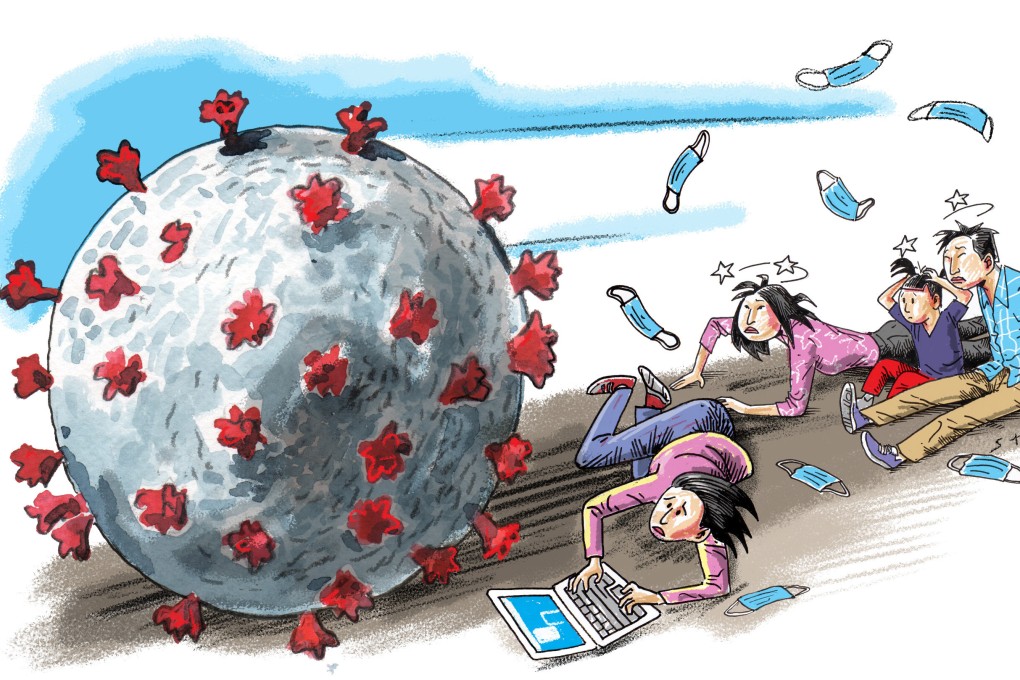Opinion | Now Hong Kong needs to fight the effects of Covid-19 on the environment, the economy and education
- Given the surge in the number of face masks and plastic utensils, measures are needed to counter their use and manage their safe disposal.
- The government must also do more to protect middle-income households from falling into poverty, and counter the effects of remote learning on existing inequalities

As Covid-19 infections decline, the Hong Kong government is trying to boost the vaccination rate to win its fight against the coronavirus. But the battle extends to other arenas. In three important sectors, namely the environment, economy and education – the 3Es – the pandemic has raised issues that need more targeted measures from the government.
Take the environment. With a recycling rate below 30 per cent and more domestic waste per capita than economically comparable cities such as Tokyo and Seoul, Hong Kong’s struggles with waste predate the pandemic.
Together, these are a source of litter and a threat to the environment. In February last year, months before mask-wearing in public places became compulsory, environmental group Oceans Asia reported that discarded face masks were lining the beach in the uninhabited Soko Islands.


